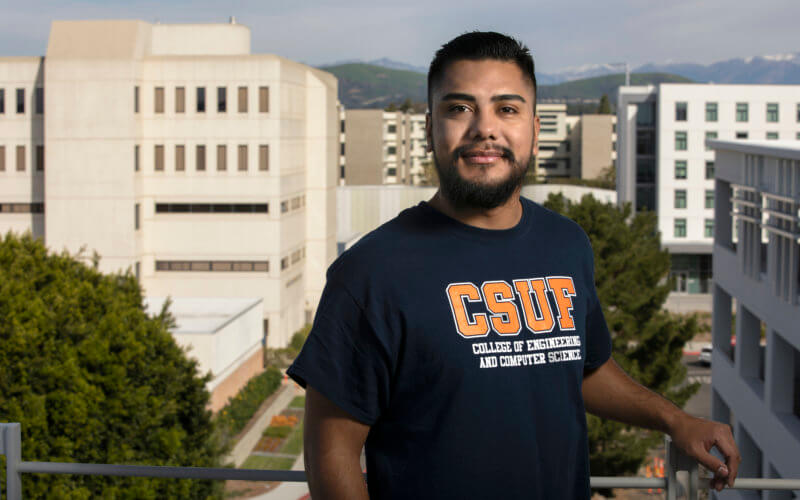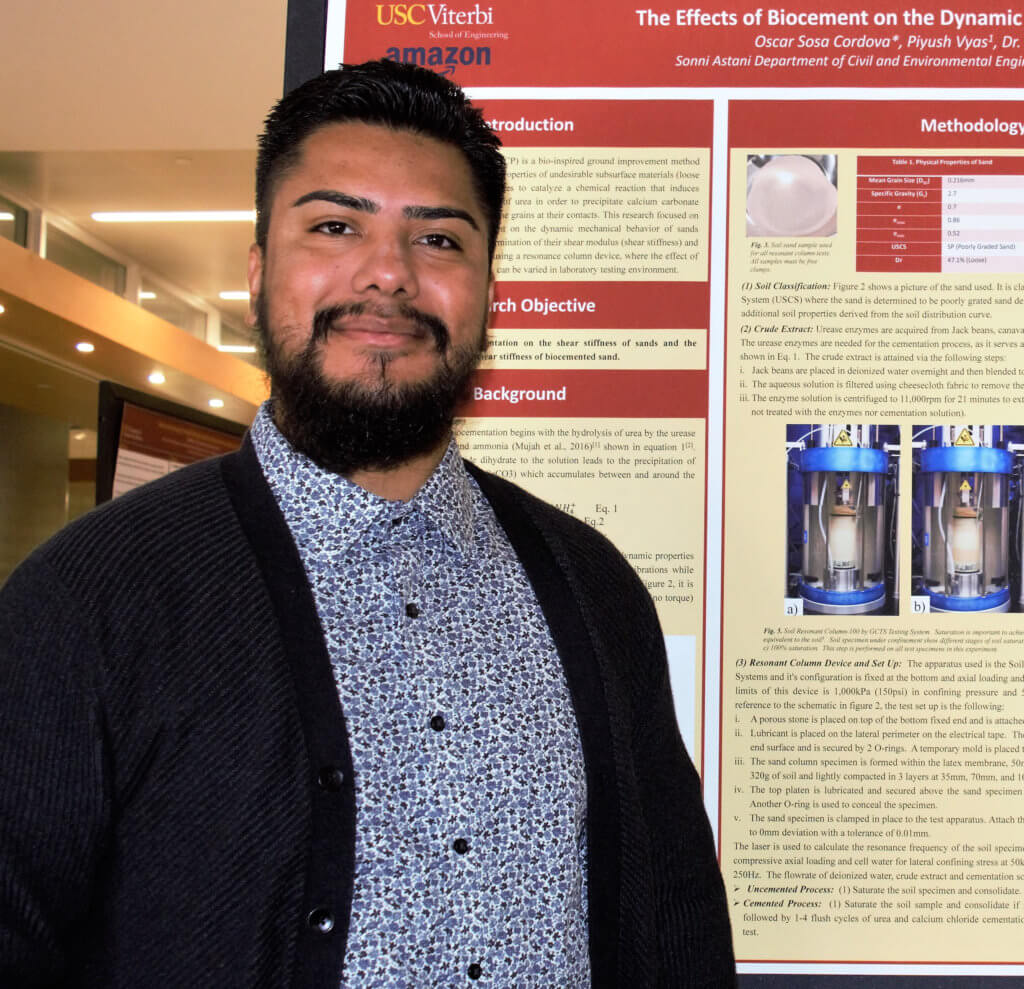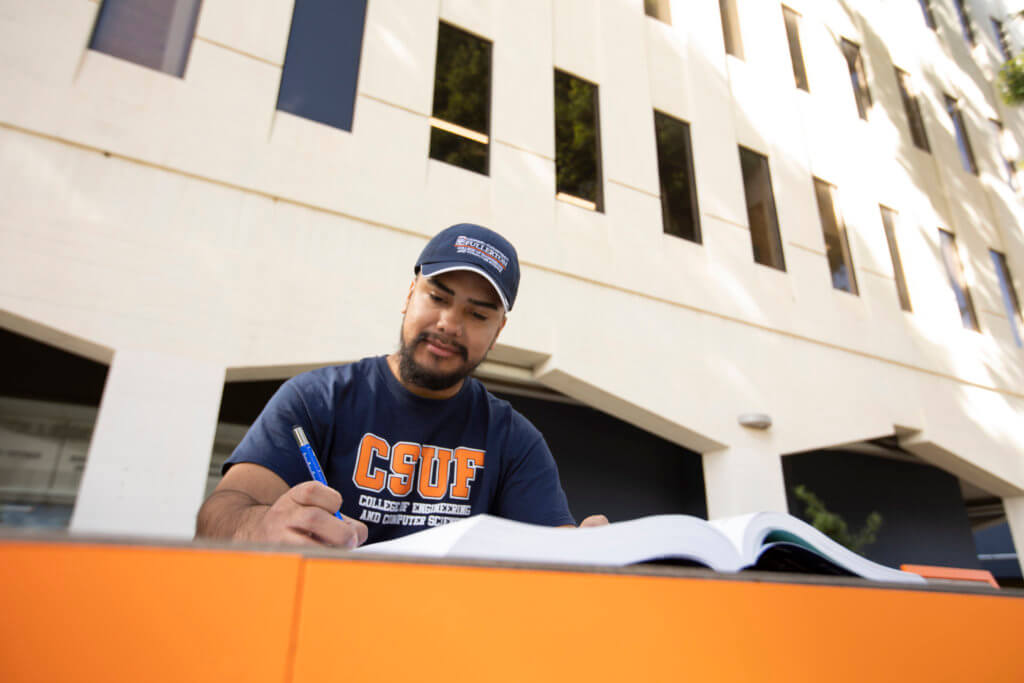
Oscar Sosa Cordova didn’t know any engineers growing up or believe he could become one.
At a young age, peers told him that college was out of reach and that even if he graduated, he wouldn’t be able to work in the U.S. due to his immigration status.
“I put my head down but raised it right away,” Sosa Cordova said. “I promised myself that I would do everything in my power to succeed and be the person who can look back and say, ‘I did it’ — and not let my circumstances dictate the outcome of my life.”
In May, the Cal State Fullerton senior will be the first in his family to earn a bachelor’s degree in civil engineering.
“I’m a first-generation DACA (Deferred Action for Childhood Arrivals) college student raised by two farmworkers who gave up everything for a better life in the U.S.,” he said. “At Cal State Fullerton, I’ve reached heights I never thought I could achieve.”
After graduation, Sosa Cordova landed his first engineering position at a construction management firm. He also plans to earn a graduate degree and a professional engineer license.
He pursued a civil engineering career because of his interest in building bridges, high-rise structures, and, one day, his home.
Future Civil Engineer Finds Support, Scholarships

At age 3, the future civil engineer came to the U.S. from the Mexican state of Veracruz with his parents and two siblings.
After graduating high school, he couldn’t afford college and entered the workforce. Two years later, he saved enough money, quit his job at a manufacturing plant and enrolled in community college. He earned four associate degrees and transferred to CSUF in fall 2021.
Sosa Cordova credits the opportunities and resources at the university for helping him reach his academic goals. He participated in student organizations and scholarly research, worked as a peer mentor and received numerous scholarship awards.
He recalled how his first scholarship, the Dr. Pinaki Chakrabarti Scholarship in Civil and Environmental Engineering, helped him on his educational path.
“This was special because, as an undocumented student, I had counted myself out of many scholarship opportunities,” he said.
Sosa Cordova also found a second home in CSUF’s Titan Dreamers Resource Center, which offers support and resources to students, regardless of their immigration status.
“At the center is where I feel safe and the most connected with the university,” he said. “Imagine being a part of a community that is unseen, and then, one day, walking into an institution that supports the undocumented. I felt a sense of relief.”
Sosa Cordova became a volunteer at the center, guiding other students like him, helping them get scholarships and navigating employment opportunities.
“I recognized that I lived in fear for most of my life, and this was my way to give back to my community,” he said. “As a peer mentor, I’ve been able to make a difference in the lives of others in a similar situation.”

Because of his experiences as a community college transfer student, he worked as a student assistant for Project RAISE. The program focuses on increasing the number of Hispanic and low-income transfer students in STEM disciplines.
Sosa Cordova also made new friends and found a sense of belonging by joining the Society of Hispanic Professional Engineers student chapter and serving as president.
“I wanted to help other students by bridging the gap from community college to CSUF,” he said. “This allowed me to demystify opportunities and share resources.”
As a McNair Scholar, a program that prepares underrepresented students for graduate school, he worked on civil engineering research, including a summer project in soil stabilization at USC. For his senior design project, he’s working on team research to develop plans for a sustainable water park and hotel resort.
“I once was the kid who felt he couldn’t go to college. But I stayed optimistic despite the challenges and aimed to be the best I could be,” Sosa Cordova said. “I’m proud of myself because I kept my promise to earn my bachelor’s degree and become an engineer.”